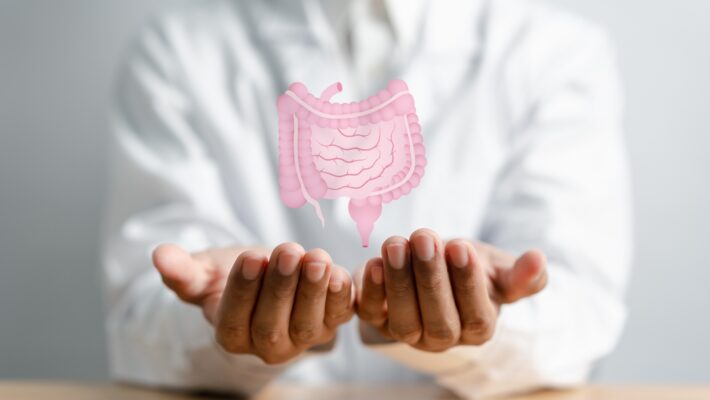
Spotlight-Gastrointestinal Health
| By Kurt N. Woeller, DO & Tracy Tranchitella, ND
Gastrointestinal health is connected to all functions within the digestive tract working in unison to support proper digestion, assimilation, nutrient absorption, and toxin elimination. Unfortunately, perfect function of the digestive process is a rare occurrence for millions of people in the United States and around the world. In fact, it would be difficult to find someone who hasn’t experienced some type of gastrointestinal complaint at some time in their life. Gastrointestinal health is dependent on normal function of all the structures listed below: • Oral cavity – teeth, chewing, some enzymes and saliva production. The mouth is the first place where gastrointestinal health begins. • Esophagus – this is the tube that runs from the back of the throat to the stomach. Irritation and inflammation in the esophagus can affect gastrointestinal health. • Stomach – this is the main area of acid production to help breakdown proteins. The acid environment of the stomach is also a deterrent for pathogens entering the digestive system. • Small intestine – the small intestine is made up of three parts: duodenum, jejunum, and ileum. Each has its own unique function in helping with digestion, absorption, and assimilation. • Large intestine (aka colon) – this large tube is involved in stool formation, water reabsorption, and the final area for toxin accumulation to be expelled through stool evacuation. • Liver and gallbladder – many people don’t realize that the liver and gallbladder play an integral role in gastrointestinal health. The liver produces bile that is stored by the gallbladder which then releases this bile into the small intestine to help with emulsification of fat and absorption of fat-soluble vitamins. Bile also binds to intestinal toxins as food passes through the gastrointestinal tract. • Pancreas – the pancreas functions as both an exocrine and endocrine gland. The exocrine function includes the production of enzymes needed for food digestion. The pancreas produces amylase, lipase, and protease enzymes to breakdown starches, fats, and proteins. The endocrine function involves the production of insulin to escort glucose into cells to be used for energy and glucagon to stimulate the breakdown of stored glucose for energy. |
Gastrointestinal Health Testing Options
For an overall gastrointestinal health assessment, a Comprehensive Digestive Stool Analysis (CDSA) is an excellent profile to perform. It provides digestive markers for inflammation, fecal blood, bacteria, yeast, and parasites. Along with the CDSA, an Organic Acids Test (OAT) provides an in-depth view into bacterial and yeast toxins and other metabolic problems affecting health.
Many food sensitivities can lead to a lot of gastrointestinal health problems as well, and the Comprehensive Food IgG Test helps to identify various food sensitivities.
The OAT, CDSA, and Food IgG tests are three profiles commonly done in practice. These tests are combined to give a broad view of digestive health and other factors that can lead to digestive problems.
Direct Lab Ordering Through Lab Tests Plus
A convenient access website for laboratory testing is Lab Tests Plus (https://labtestsplus.com). This website provides various tests from Mosaic Diagnostics Laboratory (formally Great Plains Laboratory), Doctors Data, and ZRT Laboratory. Each profile mentioned previously is available through Lab Tests Plus with the test results sent to Dr. Woeller or Dr. Tranchitella of Sunrise Functional Medicine for review, interpretation, and recommendations.
A popular combination of tests available through Lab Tests Plus for digestive health assessment are the following:
For more information about the lab tests available through Lab Tests Plus, go to https://labtestsplus.com or email LabTestsPlus@gmail.com.




